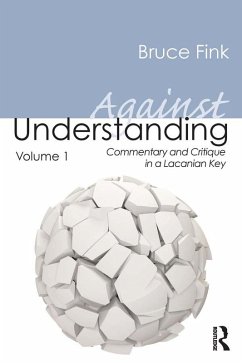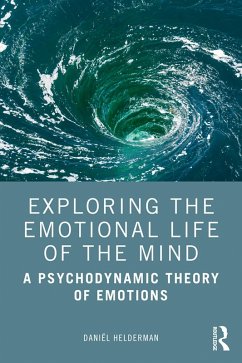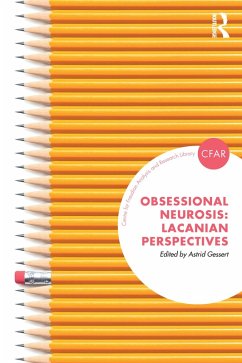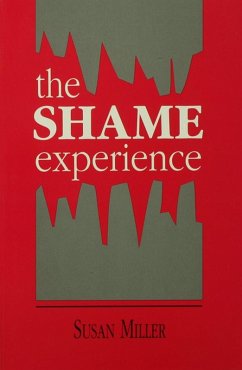
Emotions of Menace and Enchantment (eBook, PDF)
Disgust, Horror, Awe, and Fascination
Versandkostenfrei!
Sofort per Download lieferbar
41,95 €
inkl. MwSt.
Weitere Ausgaben:

PAYBACK Punkte
21 °P sammeln!
Emotions of Menace and Enchantment examines four pivotal human emotions. It explores what defines these emotions, how they interact, and how they impact the experience of self-boundary. All four feelings speak to the boundary around the self, to whether we stiffen that boundary, relax it or worry about its fraying.Psychoanalysis has looked closely at conflicts that human beings experience, but has paid relatively less attention to the specific emotions through which conflict is known and managed. The disgust emotion is unique in operating like a gatekeeper that manages what approaches us close...
Emotions of Menace and Enchantment examines four pivotal human emotions. It explores what defines these emotions, how they interact, and how they impact the experience of self-boundary. All four feelings speak to the boundary around the self, to whether we stiffen that boundary, relax it or worry about its fraying.
Psychoanalysis has looked closely at conflicts that human beings experience, but has paid relatively less attention to the specific emotions through which conflict is known and managed. The disgust emotion is unique in operating like a gatekeeper that manages what approaches us closely. Disgust appears prominently in our relationship with the physical world, but surprisingly, is just as common in the world of politics. It moves people to action, including deeds of great violence. Horror occurs when we feel invaded and altered by something that leads to profound insecurity. Human beings behaving inhumanly is one common source of horror. While disgust is a moral emotion, horror makes no judgments but speaks to the misery of being unsafe. Awe opens the self to the outside world, and creates moments that sustain us through times of stress. Fascination also involves openness but its characteristic attitude and attention shows its differences from awe. It forms the foundation for deep learning. All four emotions find their way into psychopathology; for example, fascination plays a role in addiction and awe in masochism and cult formation.
Emotions of Menace and Enchantment
will help mental health professionals in psychoanalysis, psychotherapy, psychiatry and social work to better parse clinical encounters with the four emotions and to think as well about defensive patterns aimed at blunting contact with them. It will engage anyone interested in examining the roles these emotions play in politics, societal violence, addictions, and everyday joys and suffering.
Psychoanalysis has looked closely at conflicts that human beings experience, but has paid relatively less attention to the specific emotions through which conflict is known and managed. The disgust emotion is unique in operating like a gatekeeper that manages what approaches us closely. Disgust appears prominently in our relationship with the physical world, but surprisingly, is just as common in the world of politics. It moves people to action, including deeds of great violence. Horror occurs when we feel invaded and altered by something that leads to profound insecurity. Human beings behaving inhumanly is one common source of horror. While disgust is a moral emotion, horror makes no judgments but speaks to the misery of being unsafe. Awe opens the self to the outside world, and creates moments that sustain us through times of stress. Fascination also involves openness but its characteristic attitude and attention shows its differences from awe. It forms the foundation for deep learning. All four emotions find their way into psychopathology; for example, fascination plays a role in addiction and awe in masochism and cult formation.
Emotions of Menace and Enchantment
will help mental health professionals in psychoanalysis, psychotherapy, psychiatry and social work to better parse clinical encounters with the four emotions and to think as well about defensive patterns aimed at blunting contact with them. It will engage anyone interested in examining the roles these emotions play in politics, societal violence, addictions, and everyday joys and suffering.
Dieser Download kann aus rechtlichen Gründen nur mit Rechnungsadresse in A, B, BG, CY, CZ, D, DK, EW, E, FIN, F, GR, HR, H, IRL, I, LT, L, LR, M, NL, PL, P, R, S, SLO, SK ausgeliefert werden.













